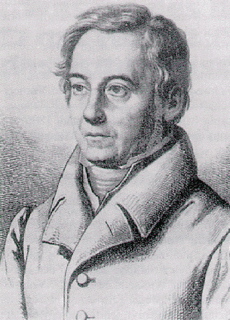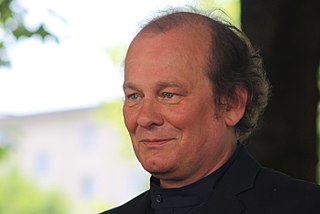 W
WErnst Moritz Arndt was a German nationalist historian, writer and poet. Early in his life, he fought for the abolition of serfdom, later against Napoleonic dominance over Germany. Arndt had to flee to Sweden for some time due to his anti-French positions. He is one of the main founders of German nationalism and the 19th century movement for German unification. After the Carlsbad Decrees, the forces of the restoration counted him as a demagogue.
 W
WHans Fallada was a German writer of the first half of the 20th century. Some of his better known novels include Little Man, What Now? (1932) and Every Man Dies Alone (1947). His works belong predominantly to the New Objectivity literary style, a style associated with an emotionless reportage approach, with precision of detail, and a veneration for 'the fact'. Fallada's pseudonym derives from a combination of characters found in the Grimm's Fairy Tales: The titular protagonist of Hans in Luck, and Falada the magical talking horse in The Goose Girl.
 W
WFriedrich Griese was a German novelist. He was associated with the nationalist literary movement during the Third Reich.
 W
WCountess Ida von Hahn-Hahn was a German author from a wealthy family who lost their fortune because of her father's eccentric spending. She defied convention by living with Adolf von Bystram unmarried for 21 years. Her writings about the German aristocracy were greatly favored by the general public of her time. Ida von Hahn-Hahn often wrote about the tragedies of the soul and was influenced by the French novelist George Sand. She "was an indefatigable campaigner for the emancipation of women" and her writings include many strong female characters.
 W
WVolker Handloik was a German freelance journalist and reporter. Born in Rostock, East Germany, he worked for the Hamburg-based Stern for 10 years and also did some correspondence for newspapers, journals, and magazines such as the Frankfurter Allgemeine Zeitung, Süddeutsche Zeitung, taz, Berliner Zeitung, National Geographic, Stern, Focus, mare, Geo, Merian, and the Spiegel Reporter. Handloik, who spoke Russian and Spanish fluently often traveled to the former Soviet republics and to South America and had been working in northern Afghanistan since October 2001.
 W
WEdmund Hoefer was a leading German novelist of the second half of the 19th century and a noted literary historian.
 W
WWalter Kempowski was a German writer. Kempowski was known for his series of novels called German Chronicle and the monumental Echolot ("Sonar"), a collage of autobiographical reports, letters and other documents by contemporary witnesses of the Second World War.
 W
WLudwig Gotthard Kosegarten, also known as Ludwig Theobul or Ludwig Theoboul, was a German poet and Lutheran preacher.
 W
WHerbert Nachbar was a German writer resident in the German Democratic Republic.
 W
WFritz Reuter was a novelist from Northern Germany who was a prominent contributor to Low German literature.
 W
WHans Werner Richter was a German writer.
 W
WRudolf Tarnow was a Low German writer.
 W
WPeter Wawerzinek is a German artist and writer.